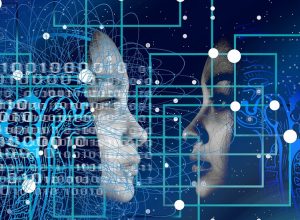The United Nations Educational, Scientific and Cultural Organization (Unesco) and the Inter-American Press Association (IAPA) are promoting the online seminar “Journalism, Artificial Intelligence and Human Rights” on September 6 and 7.
The meeting will discuss the role of media and communications professionals in the face of the news industry’s key technological challenges, and will offer a perspective on the use of cutting-edge technology in a social context in journalism and human rights.
Registration is free and participants will receive a certificate. You do not need to be a journalist to apply.
Technological, ethical and legal aspects of AI in journalism are on the agenda
The seminar will always begin at 11 am by Natalia Zuazo, Montevideo-based UNESCO consultant, and Carolina Martínez Elebi, Information Technology and Human Rights expert.
On the first day, Zuazo will present the history of technology, explaining global and regional legislation and its social, political and economic implications.
It will also address misinformation and fake news; A practical event will be held with the participants on the functioning of internet infrastructures and how the governance processes are organized.
On September 7, Carolina Martínez Elebi will talk about the risks artificial intelligence poses to society and discuss transparency and privacy in light of human rights and sustainable development goals.
Other topics of his presentation will be mass surveillance, environmental protection, artificial intelligence and gender, the ethical impact of automated processes, and the opportunities and risks of artificial intelligence for journalism.
On the same day, Fabrizio Scrollini, director of the Latin American Open Data Initiative (ILDA), will give a presentation on the SIP Bot, a real-time tool to monitor the state of press freedom in journalism in America, operating using Intelligence. Artificial.
Also Read | Website uses artificial intelligence to show press freedom in America in real time
Instructors will also present the Artificial Intelligence Ethics Proposal, which UNESCO approved in 2021 and is being rolled out in the region.
Natalia Zuazo highlights the importance of media professionals having a critical view of technology and artificial intelligence resources from a human rights perspective.
According to the UNESCO representative, since 2019, trainings on these topics have been held with the participation of about three thousand professionals.
Also Read | Oxford research says AI can distinguish who is swiping or typing in lowercase
source: Noticias

